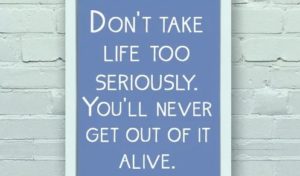“What is it going to take to make me feel good about myself?”
You try to make yourself a priority but somehow, something or someone always pushes your wellbeing down the list.
It’s impossible to say no.
You have tried to schedule time for yourself on your calendar, including a spa-like bath at home. It doesn’t work.
Then, there’s always another day when you have no balance.
You are responsible for your own health and wellness. It is overwhelming to think of putting yourself first.
It is true that if you don’t make time for yourself, your health will suffer. Your wellness must be prioritized. A strategy is essential.
#1 Creating enriching experiences
Your life will be richer if you have enriching experiences. It can be difficult to tell someone you want to have an enriching experience, especially if you already have so many things going on.
Being present can enrich your life. Do you feel fully present with others? Are you able to be fully present with others? How can you stop your mind from spinning?
- If your mind is wandering, close your eyes, take slow, deep breathes, and then open your eyes again. This will calm your mind and help you to get back in the present.
- Endorphins can be released by doing a short exercise, such as jumping jacks or running in place, depending on the situation. This helps you to calm your mind.
- Listen to the music around you. Listen to the music when your mind starts chattering. Music can help calm brain activity.
You can try any or all of these techniques. It takes practice, but it works. It becomes more natural the more you practice it. The mind chatter will become quieter.
#2 Laughter can be the best medicine
The body can’t tell the difference between real laughter and fake laughing. Give it a shot!
For 30 seconds, let out a loud laugh and then wait for 1 minute. It’s easy to do. How do you feel after a while?
Laughter can provide short-term benefits for more oxygen intake. This benefits your heart and boosts endorphins in your brain.
Laughter can help you to have a better immune system over the long-term. It helps positive thoughts outweigh negative ones and releases neuropeptides. These neuropeptides are helpful in fighting stress and other diseases.
Best of all, laughter comes free.
#3 Try something new
Do you long to learn new things? You might also want to learn something new. Perhaps you are looking to learn how to draw, run 5ks, or learn a new language.
This is the reality at Central Connecticut State University (CCSU). When we learn something new, our brain chemistry changes. Our brains have white matter. The more we learn new skills, the more dense our white matter gets, which allows us to learn better.
Learning new things doesn’t mean you aren’t using your white matter. Your brain will be able to fight against dementia if you are actively learning new things. The loss of white matter in the brains has been associated with dementia.
What can you do right now to learn new things? It doesn’t need to be difficult. Try something new.
#4 Unplug
Technology isn’t the problem, let’s face it. It’s us, the people and how we use our time.
If we don’t take control, technology can become addictive. Are you prone to saying things?
“I can’t put my phone down”
“I must check my email right now”
“Just one minute more” (which becomes an hour)
You may be addicted to technology. Only when an object is removed can addiction be understood.
Ping.
Worse, when someone tells you that you didn’t see my message, what they really mean, is that they don’t think I was important enough to bother reading my 2-second message. You are far more important than you think. Your own health and well-being are the most important.
Then there’s another.
University of Maryland, College Park students conducted a study on how long it took to go 24 hours without any technological devices.
Students found their way without technology and social media distractions:
They were more productive and learned more. This is good news for brains, white matter, and the brain.
They were also more attentive to their surroundings and what was happening. They were more present.
Imagine what you could accomplish for your own wellbeing if students were able to be productive in just 24 hours.
Give it a shot. It is very refreshing.
#5: Getting back to basics
“Life isn’t complicated. Complexity is what we are. We are complex.
Simplicity means less stress. How can you simplify a complicated world? These are some tips to simplify complex worlds:
Living below your means is a good idea. Spending beyond your means and trying to pay bills off can cause stress and anxiety. This can affect your heart, brain and blood pressure.
Get rid of clutter in your home. Get rid of anything you don’t use. It’s a great way to boost self-confidence and feel energized. A clean, organized space can reduce anxiety and stress.
Spend 30 minutes alone. You can either lie down on the ground or in a chair. Relax your mind with deep breathing and quieten it. Relaxation can help relieve stress.









